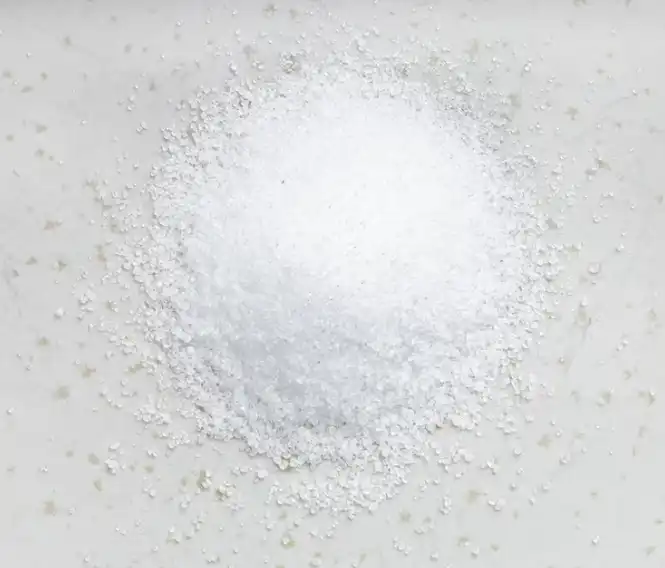IUPAC Name
Ammonium Hydrogen Carbonate
Cas Number
1066-33-7
HS Code
2836.99.90
Formula
NH4HCO3
Appearance
White Crystalline Powder
Common Names
Ammonium Hydrogen Carbonate
Packaging
25 Kg Bag
Ammonium bicarbonate is a white crystalline powder that is soluble in water. It has a mild ammonia-like odor. Ammonium bicarbonate is formed through the reaction of ammonium cations (NH4+) and bicarbonate anions (HCO3-). It is a weak base that decomposes when heated, releasing ammonia gas, carbon dioxide gas, and water vapor. This decomposition makes ammonium bicarbonate useful as a leavening agent, as the gas produced during decomposition causes baked goods to rise.
Ammonium bicarbonate is typically produced through a reaction between ammonia and carbon dioxide. The manufacturing process can be broken down into several steps:
Gaseous ammonia (NH3) and carbon dioxide (CO2) are introduced into a reactor vessel. The ammonia and carbon dioxide react to form ammonium bicarbonate according to the following equation:
NH3 + CO2 + H2O → NH4HCO3
The ammonium bicarbonate that is formed in the reactor vessel is absorbed into a water solution. The resulting solution is then pumped to a crystallization tank where the ammonium bicarbonate is separated from the water by cooling the solution.
Purification: The ammonium bicarbonate crystals are further purified by washing and filtering. The final product is a white crystalline powder with a purity of around 99%.
Ammonium bicarbonate is widely used as a leavening agent in baked goods such as cookies, crackers, and biscuits. Its ability to release carbon dioxide gas when heated helps to create a light and airy texture in these products. It can be used as a pH buffer in some food products. It helps to regulate the acidity of the food and improve its shelf life.Food grade ammonium bicarbonate can be used as a source of nitrogen in some fermented food products. It can help to support the growth of yeast and other microorganisms, and is often used in the production of some types of cheese, soy sauce, and other fermented foods.
Pharmaceutical Industry
Ammonium bicarbonate is used as a buffering agent in the production of certain pharmaceuticals. It helps to regulate pH levels and stabilize the chemical properties of these drugs. It is commonly used in medications that require a slightly acidic pH, such as some antacids and analgesics. It is sometimes used in inhalation therapy to treat respiratory disorders such as chronic obstructive pulmonary disease (COPD). When inhaled, it helps to break down mucus and improve lung function. It can be used as a contrast agent in medical imaging procedures such as computed tomography (CT) scans. It helps to enhance the visibility of certain structures within the body. It can be used as an electrolyte in hemodialysis procedures. It helps to regulate the pH balance of the blood and maintain proper electrolyte levels in patients with kidney failure.
Ammonium bicarbonate is used as a nitrogen fertilizer in agriculture. It can be added to soil to provide a source of nitrogen that is readily available to plants. It can be used as a fire extinguishing agent. When heated, it releases ammonia and carbon dioxide gases that can help to smother fires and prevent them from spreading.It is used in the production of some ceramics. It can help to regulate the pH of ceramic glazes and improve their adhesion to the underlying surface. It also can be used as a blowing agent in the production of some polymer foams. It helps to create a uniform cell structure and improve the insulation properties of these materials.
